



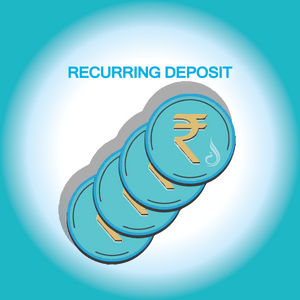





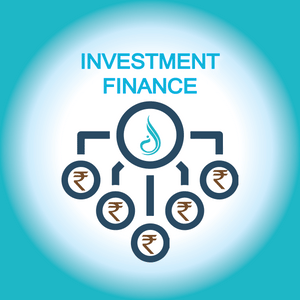


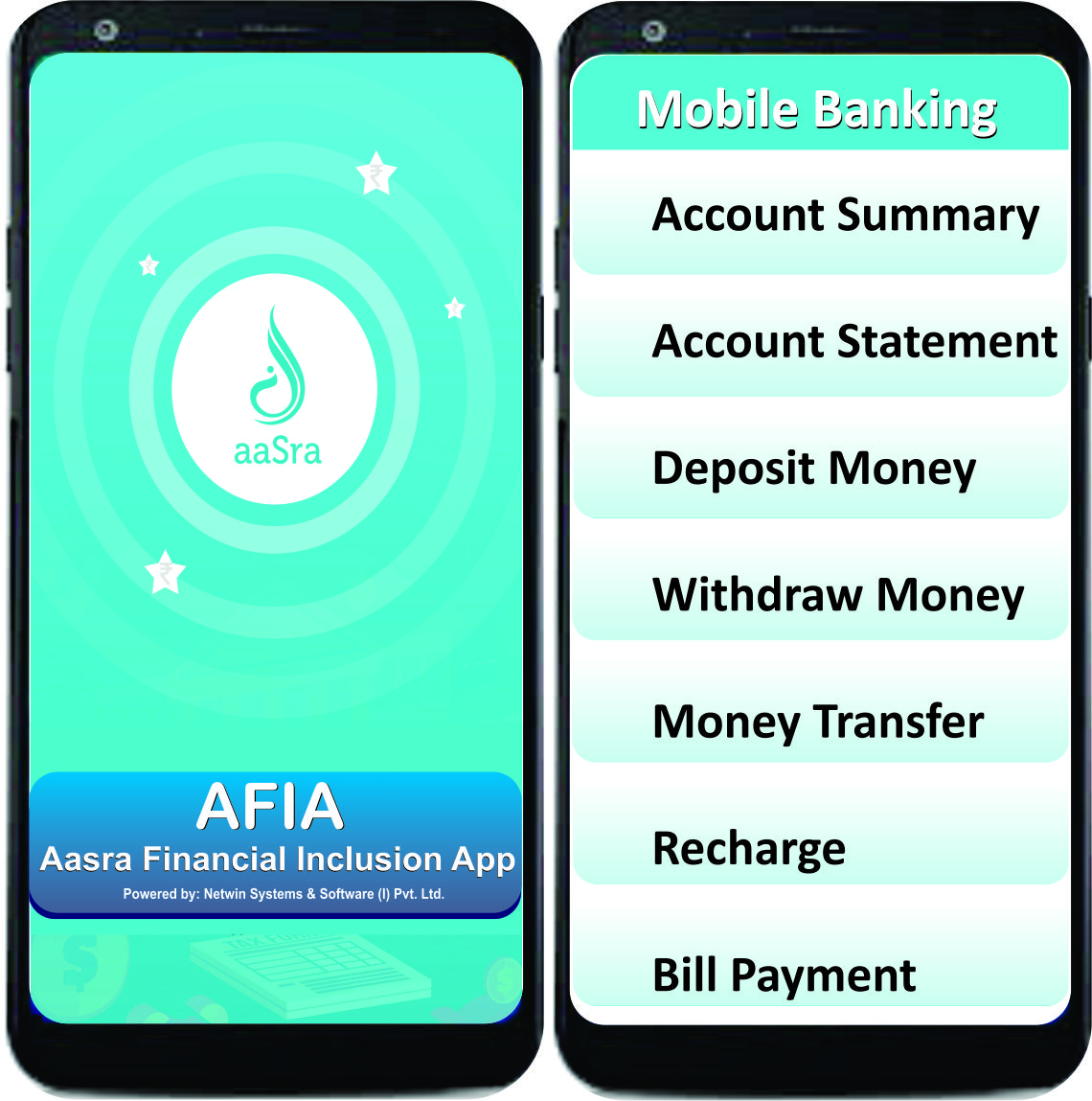
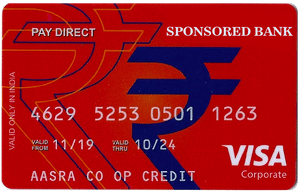
-
- Aasra Cooperative Credit Society Ltd.
- (Multi State Society vide Registration No.:- MSCS/CR/115/2000)
- ………. India’s Unique Interest-free Financing platform based on ethical concept of Sharing & Caring.
About Us
- Visualizing the scope for interest-free banking and financial services in India, before close of last century a group of people across India initiated to register a multi-state Cooperative Credit Society; and accordingly by 15th January 2001 Aasra Cooperative Credit Society Ltd was registered vide registration No. MSCS/CR/115/2000. Though the basic object of Aasra Cooperative Credit Society is to provide interest free banking and finance, its registered bye-laws is complying with the Acts and Rules (like MSCS Act 2002 and MSCS Rules 2002) set for Multi State Societies framed by the department of Cooperation, Ministry of Agriculture, Government of India. So this interest-free society shall be abiding by its registered bye-laws without over ruling relevant acts and rules.
- Please be noted that we are neither any bank, nor any NBFC, but just a registered multi state Cooperative Credit Society. Aasra is unique Multi-State Cooperative Credit Society as it the first and the only Multi-State Cooperative Credit Society with permission to cater interest free banking and financial services in 16 major states of India.
- By 2nd December 2008, Society incorporated few changes in registered Bye-laws including change in its registered office. Accordingly w.e.f. 02.12.2008, the registered office of Aasra has been shifted from Delhi to Mumbai. Accordingly the amount of authorized share capital of the society has been increased to Rs. 50 crores.
-
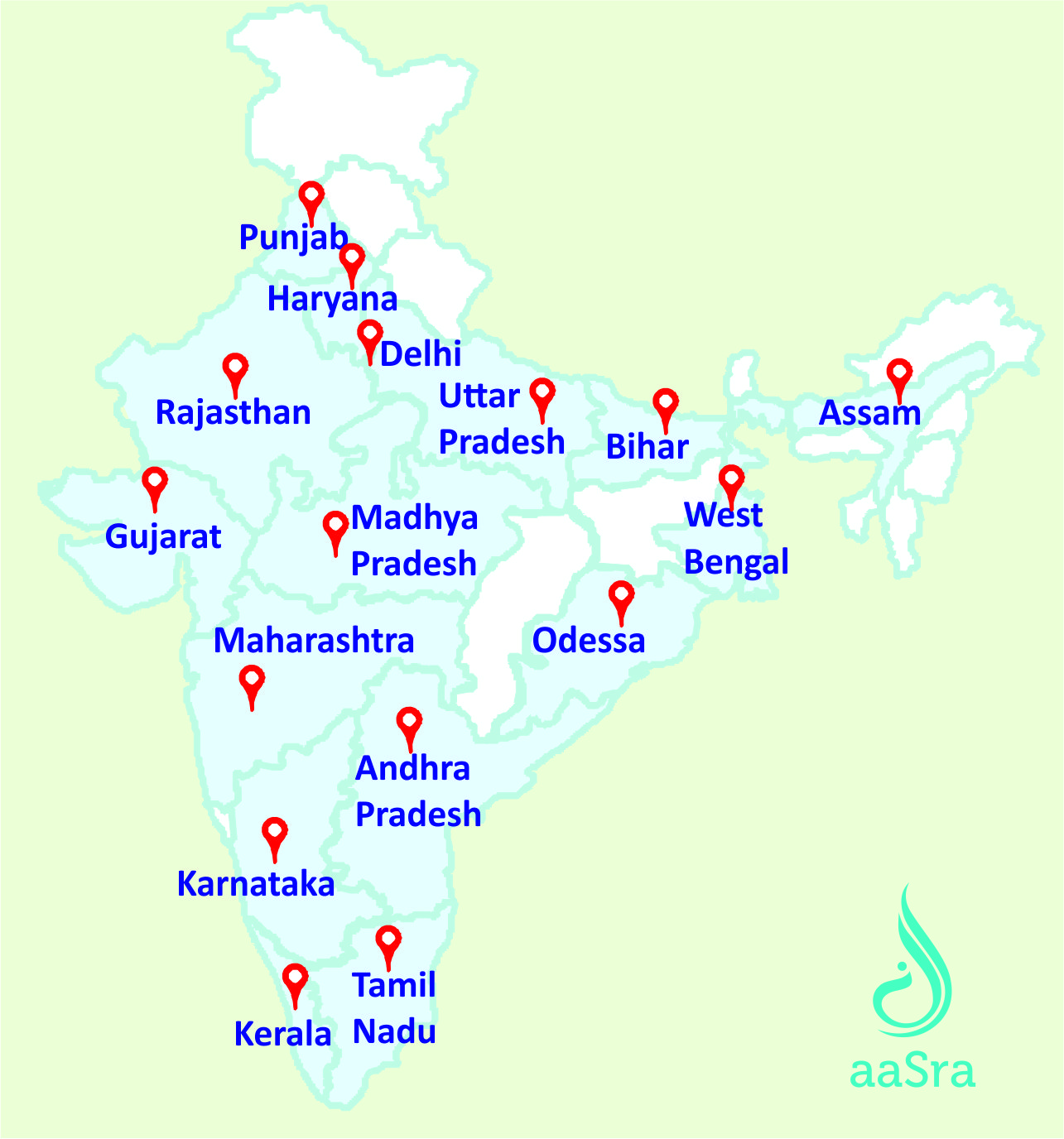
- According to Census of India 2011, there are 1,103 million in above 16 states, so Aasra can potentially serve around 91% of total India’s population. The gist of objects mentioned in its registered bye-laws may be summarized in following words:
- “The main objective of Aasra Cooperative Credit Society is to serve its members by providing them avenues of thrift, savings and finance on interest-free basis and also to provide consultancy and advisory services enabling them carry on their business in efficient and profitable manner; along with benefiting them through mutual cooperation.”
- Please note we are here not to promise any attractive rate of return over deposits or investments, but committed to help those who are looking for alternative financial services so as to get rid of interest bearing financial transactions. We are committed to provide safety and security to money deposited by our members.
- Board of Directors
- According to MSCS Act 2002 the board shall consist of such number of directors as may be specified in the bye-laws:
- Provided that the maximum number of directors in no case shall exceed twenty-one:
Provided further that the board may co-opt two directors in addition to twenty-one directors specified in the first proviso:
Provided also that the functional directors in the national cooperative societies shall also be the members of the board and such members shall be excluded for the purpose of counting the total number of directors specified in the first proviso. - The MSCS Act 2002 further clarifies that no member of any multi-state cooperative society or nominee of a member, society or a national cooperative society shall be eligible for being chosen as, or for being, a member of the board of such multi-state cooperative society or a national cooperative society, or of any other cooperative society to which the multi-state cooperatives society is affiliated, if such member-
- (a) has been adjudged by a competent court to be insolvent or of unsound mind;
- (b) is concerned or participates in the profits of any contract with the society;
- (c) has been convicted for an offence involving moral turpitude;
- (d) holds any office or place of profit under the society:
- Provided that the Chief Executive or such full time employee of the society as may be notified by the Central Government from time to time or a person elected by the employees of such society to represent them on the board of such society shall be eligible for being chosen as, or for being, a member of such board:
- (e) has been a member of the society for less than twelve months immediately preceding the date of such election or appointment;
- (f) has interest in any business of the kind carried on by the society of which he is a member;
- (g) has taken loan or goods on credit from the society of which he is a member, or is otherwise indebted to such society and after the receipt of a notice of default issued to him by such society, has defaulted-
- (i) in repayment of such loan or debt or in payment of the price of the goods taken on credit, as the case may be, within the date fixed for such repayment or payment or where such date is extended, which in no case shall exceed six months, within the date so extended, or
- (ii) when such loan or debt or the price of goods taken on credit is to be paid in instalments, in payment of any instalment, and the amount in default or any part thereof has remained unpaid on the expiry of six months from the date of such default:
- Provided that a member of the board who has ceased to hold office as such under this clause shall not be eligible, for a period of one year, from the date on which he ceased to hold office, for re-election as a member of the board of the multi-state cooperative society of which he was a member or for the election to the board of any other multi-state cooperative society;
- (h) is a person against whom any amount due under a decree, decision or order is pending recovery under this Act;
- i) is retained or employed as a legal practitioner on behalf of or against the multi-state cooperative society, or on behalf of or against any other multi-state cooperative society which is a member of the former society.
- According to registered bye-laws of the society the day to day function and supervision of the activities of the Society will be managed by the Board of Directors. Subject to the Bye-Law and the resolutions passed at a General Meeting, the Board of Directors shall have full authority to carry on the business of the Society.
- • The board of Directors shall consist of max 21 members.
- • The term of office of the elected members of the Board shall be 5 years from the date of election.
- • Vacancies among the elected member of the Board of Director from death or any cause may be filled up by the Board member by the co-option. Such Board members shall hold office till the next Annual General Meeting.
- • If a member of the Board of Directors absents himself from three consecutive meeting of the Board without leave of absence he shall cease to be a member of the Board.
- • The Board of Directors shall meet once a quarter and shall submit at the end of the year a report to the General Brady of the Society on the financial position and working of the society together with the Audited Annual Accounts and a report of appropriation of profits.
- • No member shall be eligible for election as a member of the board of Directors if he incurs any of the disqualification / removal referred to in section 43, of the ACT.
- Presently there are 15 members in Aasra Board of Directors. They have further constituted the Executive Board comprising of 5 members for furtherance of day to day affairs of the society. The sitting Executive Board members are as following:-
- Executive Board Members
-
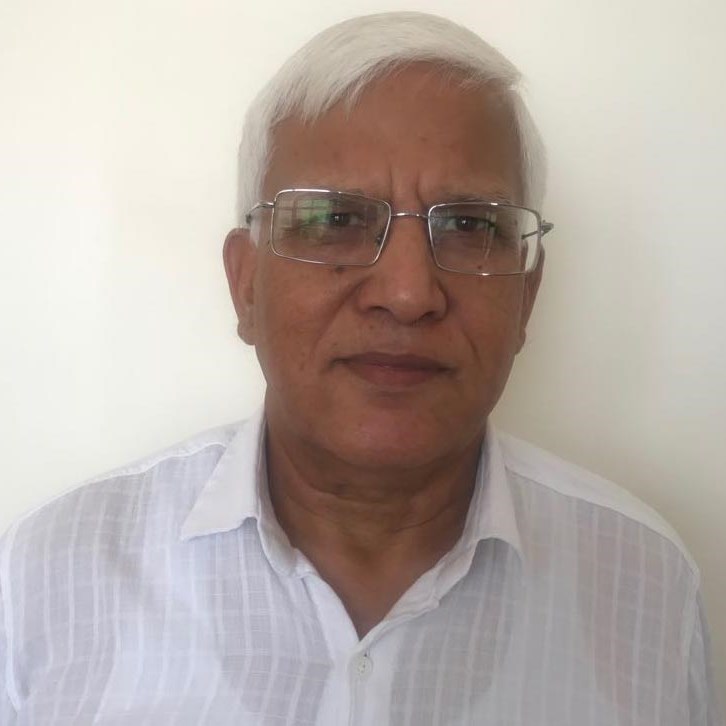 Mehmood Khan(Chairman)Mr. Mehmood Khan has 39 years of experience including 27 years in Unilever in various International positions, with postings in India, Singapore, the Netherlands and the United Kingdom. He retired as Global Leader of Unilever Innovation Process, London in 2009. Mehmood is Founder President of the IIM Network in Europe and is a Managing Trustee of the Rasuli Kanwar Khan Trust, which is transforming lives of rural populace in Mewat region of Haryana.
Mehmood Khan(Chairman)Mr. Mehmood Khan has 39 years of experience including 27 years in Unilever in various International positions, with postings in India, Singapore, the Netherlands and the United Kingdom. He retired as Global Leader of Unilever Innovation Process, London in 2009. Mehmood is Founder President of the IIM Network in Europe and is a Managing Trustee of the Rasuli Kanwar Khan Trust, which is transforming lives of rural populace in Mewat region of Haryana.
He was nominated as Person of the Year 2009 by Forbes India and was also awarded the NRI Bharat Samman Award in January, 2011. He has development experience at IIMA, Bharatiya Agro Industries Foundation, and Punjab Cooperatives; currently he is working as Social Entrepreneur to make this world a better place. Under agenda of rural development, he is not only advising the Mewat Development Agency, but also striving hard to build professional Farmer’s Producer’s Organizations in Mewat region. He holds many board positions to carry forward his cause. -
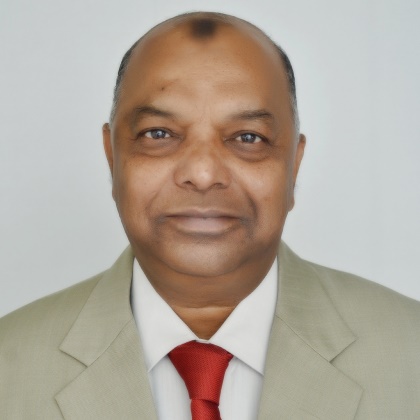 M. Z. Rehman(Chief Executive Officer)Mohammad Ziaur Rehman the CEO is academically an MBA and MFM with over 36 years of professional experience in Investment and Finance in Indian and Gulf market. Fondly known as M. Z. is the Chairman & Managing Director of TFS Group India. He is also the Chairman of Indo – Arab Chamber of Commerce & Industry; and the Vice President of Indo – Africa Chamber of Commerce & Industry.
M. Z. Rehman(Chief Executive Officer)Mohammad Ziaur Rehman the CEO is academically an MBA and MFM with over 36 years of professional experience in Investment and Finance in Indian and Gulf market. Fondly known as M. Z. is the Chairman & Managing Director of TFS Group India. He is also the Chairman of Indo – Arab Chamber of Commerce & Industry; and the Vice President of Indo – Africa Chamber of Commerce & Industry.
With intent to develop interest free finance in India, in 2008 he took over charge of Aasra as the Chairman and managed to fully hold control and protect the Society till date. After completing two full terms as Chairman of the Society in 2018 he is now serving as the Chief Executive Officer. -
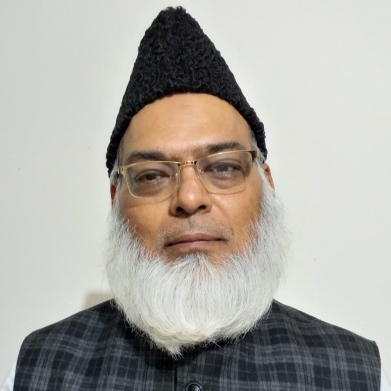 Syed Zahid Ahmad(Vice Chairman)He is a specialized professional in alternative finance; meant for financial inclusion and inclusive growth. After Completing Masters in Economics from AMU, Aligarh, he taught Economics at Jamaitul Falah, Bilariyagunj during 1995-96. During 1996 to 2010 he served AICMEU (All India Council of Muslim Economic Upliftment Ltd.) trust, Mumbai under various positions. He also served IDB (Islamic Development Bank), Jeddah as Hon. Student’s Counsellor for West Zone in India during 2000-2001.
Syed Zahid Ahmad(Vice Chairman)He is a specialized professional in alternative finance; meant for financial inclusion and inclusive growth. After Completing Masters in Economics from AMU, Aligarh, he taught Economics at Jamaitul Falah, Bilariyagunj during 1995-96. During 1996 to 2010 he served AICMEU (All India Council of Muslim Economic Upliftment Ltd.) trust, Mumbai under various positions. He also served IDB (Islamic Development Bank), Jeddah as Hon. Student’s Counsellor for West Zone in India during 2000-2001.
As ambassador of interest – free banking he approached the Committee for Financial Sector Reform (CFSR) in 2008 for positive note about Interest free banking in India. During July 2011 to December 2016 he served BASIX Social Enterprise group as Consultant for Participatory Micro Finance. He has structured innovative financial products and holds the credit to design products like Micro Equity and Joint Asset Lease etc. He has written hundreds of articles advocating alternative banking and finance. He has recently contributed as chapter on “Alternative Finance Solutions to Promote Affordable Housing in India” in a book on “Real Estate in South Asia” published by Routledge (U.K.). -
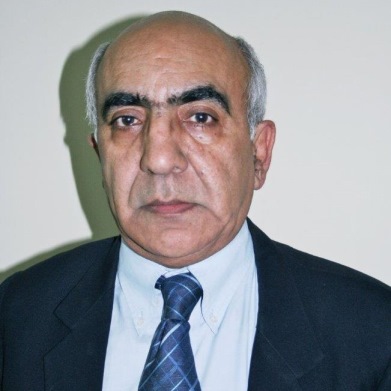 Mr. Anoop Kaul(Director)Anoop Kaul, based in Delhi, has been in the development and social sector space with BASIX Social Enterprise Group from 2007 till date. Till January 2017, he was National Head, Inclusive Growth Services, of Basix Group working in the areas of banking inclusion [as Business Correspondent of major banks of India], governance inclusion [in partnership with central and state governments managing over 15, 000 outlets providing government to citizens services], micro-insurance inclusion, renewable-energy inclusion, vocational-skill inclusion, financial inclusion through microfinance and equity support to micro-enterprises, social inclusion, micro housing solutions, municipal waste management and agriculture extension services.
Mr. Anoop Kaul(Director)Anoop Kaul, based in Delhi, has been in the development and social sector space with BASIX Social Enterprise Group from 2007 till date. Till January 2017, he was National Head, Inclusive Growth Services, of Basix Group working in the areas of banking inclusion [as Business Correspondent of major banks of India], governance inclusion [in partnership with central and state governments managing over 15, 000 outlets providing government to citizens services], micro-insurance inclusion, renewable-energy inclusion, vocational-skill inclusion, financial inclusion through microfinance and equity support to micro-enterprises, social inclusion, micro housing solutions, municipal waste management and agriculture extension services.
While in BASIX, he held some other critical responsibilities like the Chairman of the Rajasthan Livelihood Promotion Initiative under which 4.1 million BPL families were enrolled through 8, 500 outlets for Financial Inclusion in just 45 days, a global record at that time i.e. in 2008. He was also Managing Director of Shamil Milk Products Ltd., where BASIX pioneered the concept of micro equity finance to farmers. He continues to be a Director on the Board of Basix Academy for Building Lifelong Employability [B-ABLE], a skill building and government- aided entity, as well as of Bhartiya Samruddhi Finance Ltd., an NBFC. He also is a Director on the Board of Bhagirath Resurgence Ltd. & Outreach Logistics Pvt. Ltd. which are into consulting services.
Earlier he had held Director-level position on behalf of Government of Gujarat in 2 companies which are into button cell manufacture and pulp and paper mill; was also on the board of companies of Basix Group in the domains of municipal waste management and renewable energy. He had been guest faculty to various banks, Administrative Staff Collegeof India and ICFAI at Hyderabad, IIM Lucknow, Fortune Institute of International Management, Delhi, and panel speaker at FICCI, CII, IIM Ahmedabad, Lal Bahadur Shastri National Academy of Administration [Govt. of India], Economic Times, Skoch Foundation, Birla Institute of Technology & Management in Noida, Jamia Milia and Ambedkar University in Delhi.
Prior to joining Basix, and after completing his post graduate from the Delhi School of Economics in 1971, he worked with the State Bank of India [SBI], India’s largest bank, for 35 years [1971- 2007]. While in State Bank he held senior level positions in the State of Gujarat, West Bengal, Delhi and Andhra Pradesh and Bank’s Central Office and collected rich experience in banking and financial sector, including rural and agricultural banking. When he was in Gujarat, SBI deputed him to Government of Gujarat where he worked for 4 years as Deputy Secretary, Mines, Energy and Power Department, to look after Joint and Associate Sector projects as well as sick units. Later he was on deputation for 4 years to GE Capital at Gurgaon/ Delhi where he worked as Chief Financial Officer in SBI Credit Card joint venture. His last two assignments in the Bank were as General Manager, Corporate Banking in Bengal Circle and as General Manager, Training and Research, in State Bank’s apex Staff College at Hyderabad. -
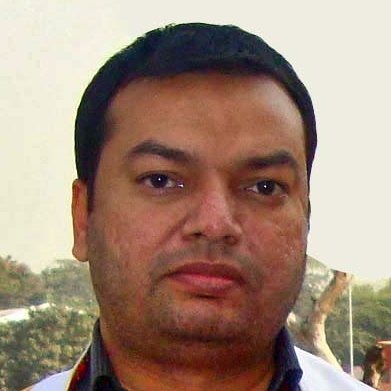 Dr. Shafeequr Rahman(Director)Dr Shafeequr Rahman is a Delhi-based researcher, has a Ph.D. in Islamic Economics from Jamia Millia Islamia, New Delhi. He has done his thesis on the topic "Development of Islamic economic thoughts in Indian subcontinent” in the year 2013 under the supervision of Professor Akhtarul Wasey, a globally known Islamic scholar. In the doctoral thesis, he studies about the forefathers of Islamic economic from Indian sub-continent i.e. India, Pakistan, and Bangladesh. He also earned the dual post-graduation in Economics and Islamic Studies from JMI New Delhi after holding the Almiyat from the renowned Madarsa Jamiatul Falah Azamgarh. His educational career has the best chemistry of traditional Islamic subjects and modern economics. He has a sound familiarity with English, Arabic, Hindi and Urdu languages.
Dr. Shafeequr Rahman(Director)Dr Shafeequr Rahman is a Delhi-based researcher, has a Ph.D. in Islamic Economics from Jamia Millia Islamia, New Delhi. He has done his thesis on the topic "Development of Islamic economic thoughts in Indian subcontinent” in the year 2013 under the supervision of Professor Akhtarul Wasey, a globally known Islamic scholar. In the doctoral thesis, he studies about the forefathers of Islamic economic from Indian sub-continent i.e. India, Pakistan, and Bangladesh. He also earned the dual post-graduation in Economics and Islamic Studies from JMI New Delhi after holding the Almiyat from the renowned Madarsa Jamiatul Falah Azamgarh. His educational career has the best chemistry of traditional Islamic subjects and modern economics. He has a sound familiarity with English, Arabic, Hindi and Urdu languages.
His data-driven articles related to prospects of Islamic finance and banking in India and on other topics related to Muslim and halal markets have frequently been published in national as well as international print and online publications. He is also the regular blogger for the Diplomat, Huffington post, Dailyo, Outlook, Fair Observer, Middle East Monitor and many others. He has over a decade and a half research experience in India centric data analysis with a renowned IT enabled company at New Delhi. The number of his research-edited titles are over thousands in socioeconomic and election domains.
He is also associated with a research-based institution focused on the halal ecosystem, International Institute of Islamic Business and Finance (IIIBF), as an Islamic economics expert. He has conducted international training programs in Islamic banking and microfinance, which were sponsored by Islamic Relief UK. With IIIBF, he developed the curriculum for the host of Islamic finance and banking subjects and also assisted in developing the different modules of Islamic banking and microfinance. His translated Urdu version of Islamic microfinance book “Islamic microfinance: ektaaruf” has been published by IIIBF.
His expertise areas of work are Islamic finance, Halal markets, inclusiveness, minorities and India’s bilateral relationship with Arab and OIC region. - General Body – Management
- 1. The General Body shall consist of all member of the Society; the ultimate authority of the Society shall vest in the General Body of Members.
- 2. The General Body shall meet at least once in a year in the Annual General Meeting.
- 3. Subject to the provision of THE RULES, and the Rules mad there under and subject to a specific delegation of powers to the Board of Directors under these Bye-laws, or delegation of other power by a specific resolution of the General Meeting, the Supreme Authority of the Society shall vest in the General Body as envisaged in Section 38 of THE ACT. The General Body shall not, however, interfere with the action of the Board of Directors or any action of the office-bearers of the Society performed in exercise of the power conferred on them under these Bye-laws or in pursuance of the powers delegated to them by the General Body.
- The board of every multi-state cooperative society shall, within such period as may be prescribed, and not later than six months after the close of the corresponding year, call the annual general meeting in the manner prescribed for the purpose of-
-
(a) consideration of the audited statement of accounts;(b) consideration of the audit report and annual report;(c) consideration of audit compliance report;(d) disposal of net profits;(e) review of operational deficit, if any;(f) creation of specific reserves and other funds;(g) approval of the annual budget;(h) review of actual utilisation of reserve and other funds;(i) approval of the long-term perspective plan and the annual operational plan;(j) review of annual report and accounts of subsidiary institution, if any;(k) expulsion of members;(l) list of employees who are relatives of members of the board or of the Chief Executive;(m) amendment of bye-laws, if any;(n) formulation of code of conduct for the members of the board and officers;(o) election of members of the board, if any.
- By 31st March 2019 total strength of Aasra Cooperative Credit Society was 1,233 members.
- Subsidiaries
- Since the Section 19 of MSCS Act 2002 allows the Multi state Cooperative Societies to open one or more subsidiary institutions (which can be registered under relevant current laws) and hold at least 51% of equity in each such institution. Hence, Aasra can open different subsidiary companies to cater variety of specialized services to their members.
- Members of Aasra have registered a subsidiary company on the name of Aasra Financial Inclusion Associates Pvt. Ltd. (AFIA) vide CIN U65990MH2019PTC331042 on dated 26th September 2019. Basic objective of AFIA is to cater financial education, training and guidance required to ensure complete financial inclusion. AFIA has placed its Financial Inclusion Associates at ward / Tehsil level. These Associates provide financial literacy, training and guidance to people about basic banking, affordable financial products and services provided by Aasra or other banks / financial institutions. They also encourage people to become active member of Aasra by subscribing share capital and by opening suitable deposit accounts as well as avail the required financial services. They not only educate and train members of Aasra on the use of digital technology, but also guide them on additional products required to fulfil their life time goals and career goals, like Mutual funds SIP (Strategic Investment Plan in mutual funds), insurance and pension schemes etc.
- More subsidiaries for different sectors like housing, trading, agriculture, agro-allied processing may be opened so as to expand its reach to more & more members. Considering the scope of Affordable Housing in India, Aasra Cooperative Credit Society may resolve establishing specific subsidiary for construction and Housing finance to promote affordable housing in India.
- Clarion Call
- Perhaps it is time we all should introspect ourselves what we have really contributed to establish and promote interest free banking and finance in India. If we really subscribe the model of interest free finance in India, then we all should consider Aasra as best institutional infrastructure to promote interest free finance in India. We all can stand as Associate for Aasra Financial Inclusion mission and we are supposed to ….
- Just join Aasra as a member by subscribing share capital of the society and paying admission fees. Society’s membership form is attached herewith.
- Park our surplus cash (saved money) into Aasra under suitable mode of deposit scheme.
- We can volunteer our time and efforts to promote the society. We may keep inviting our friends and colleague to join Aasra as best Society to promote interest free banking & finance in India. Any Society is as strong as its members and volunteers support it.
Financial Inclusion
- We believe that just opening of saving account in any bank by financially excluded people is not all meant by financial inclusion. Under financial inclusion we should allow the last man to avail basic banking services along with affordable finance, remittance, payment and other services. So, under financial inclusion mission Aasra will be inducing people to join the society as member and avail basic banking services including deposit, withdrawal, transfer of money, options to pay online / offline and transfer money with ease.
Society also aims for financial inclusion through innovative financial products and services to enabling the members avail affordable financial services without hassle and risk of fraud etc. Society will also be promoting digital banking prone to use less paper and energy resources. In future society will also be offering alternative solutions to such members who are missing insurance and pension services.

- Mobile Banking
-
Unlike other Cooperative Credit Societies, Aasra is not using traditional mode of operation. Society has Mobile Banking app to enable its members avail much needed core banking services. To reduce consumption of paper, Society is neither issuing Passbook to account-holders nor prompts to use cheques and drafts etc. Society encourages its members for digital transactions. Society provides 24*7 hours banking services through mobile app. This mobile app enables society’s members to check their accounts, deposit or withdraw money, transfer or make payment to others through RTGS / NEFT.
No paper is used to deposit / withdraw or transfer money. The members are acknowledged for their transaction through instant SMS alerts.

- Pre-Paid ATM Cards
-
Society is also providing 24*7 banking hours to its members through pre – paid ATM Cards. Members can subscribe pre paid ATM Cards by paying issuance charges of Rs. 300/-(+GST) and annual service charges of Rs. 200 + GST. It may enable them load cash into it for emergency need to withdraw cash of maximum Rs. 50,000 per month from ATMs. The member can transact online / offline through E-com or POS machines to limit of Rs. 10 lakhs.
These cards will be offered to members opening Saving or Current Deposit accounts only. Members opening Pilgrimage, Housing, Investment, Recurring or Endowment deposit accounts will not be offered such cards. Members can avail discount offers from different companies / sellers over such cards to gain cash points. Cards may further be used to deposit / transfer money through ATMs.
Card holders will have to load cash in these cards from their saving or current account. Maximum Rs. 1,00,000 may be loaded at a time and in five years period total amount of Rs. 10,00,000 may be loaded and used through such cards. The card will expire after 5 years or after transaction of Rs. 10 lakhs whichever is earlier.

- Deposit Schemes
- Considering the varied business activities and financial needs of its members Aasra is offering following specific deposit schemes to help them park their excess income / liquidity with society and use it at time of need without any hassle. These deposit schemes are open for society’s members only. Any person who is not member of the society cannot avail benefits of the following deposit schemes.
1. Saving Deposits
To promote thrift and savings among the members Aasra is offering Saving Deposit Account as basic deposit account for its members. Under saving deposit scheme, any member can deposit and withdrawal any amount at N number of time without any charge. There will be no return or interest over their deposits because the depositor is not offering any investment or lending opportunity for the society. This will be prime deposit scheme enabling the members to bank with Aasra on day to day basis transactions. Members having Saving Deposits may also subscribe Pre – Paid ATM cards to load money into ATM Card and use it withdraw cash from ATMs and or shopping online or offline anytime.

2. Endowment Deposits

3. Housing Deposits
After deducting the operational cost, Society will be proportionately sharing the earned profits / capital gain with the members holding housing deposit accounts. There will be no service charges on such deposits and withdrawal is allowed only after maturity or at with 90 days notice in case of untimed withdrawal.

4. Tourism Deposits
Society will not hedge the depositor from the risk involved in Tourism package nor any misconduct by the agent because society is not endorsing any Tourism pack or agent.

5. Current Deposits

6. Investment Deposits
The society shall proportionately credit the accrued profit / loss into customer's account after deducting administrative charges. Society shall try to hedge the risk associated with such accounts to protect the members from associated investment risks.

7. Recurring Deposits
Society is offering Recurring Deposit services to its members allowing them periodically keep adding investment amounts into specific account and withdraws the same after maturity. Society will invest the amount into Consumer Finance or purchase of Gold for its members; and share the net profit received through sale of consumer durables with the depositors. There will be no specific rate of return over such deposits depending upon actual returns.

- Financial Services
- Basically the society works for its members and so the member's deposits will only be used to help the members. Whosoever need financial help from Aasra will have to first become member of Aasra before applying for financial help. Presently the society is extending the following financial services to its members.

2. Micro Equity
Accordingly the rate of profit share for the society will keep declining according to reducing share in the enterprise.

3. Consumer Finance

4. Investment Finance

5. Interest-free Loans

Contact Us
Registered Office Address
1st Floor, Khatau Building,44, Bank Street,
Near Bombay Stock Exchange,
Fort, Kala Ghoda,
Fort, Mumbai, Maharashtra 400001
Phone Numbers
+91 22 22660109
+91 22 22665421
+91 22 22663429
+91 22 22663021
Official Email Ids
info@aasrafinance.com
admin@aasrafinance.com
ceo@aasrafinance.com
